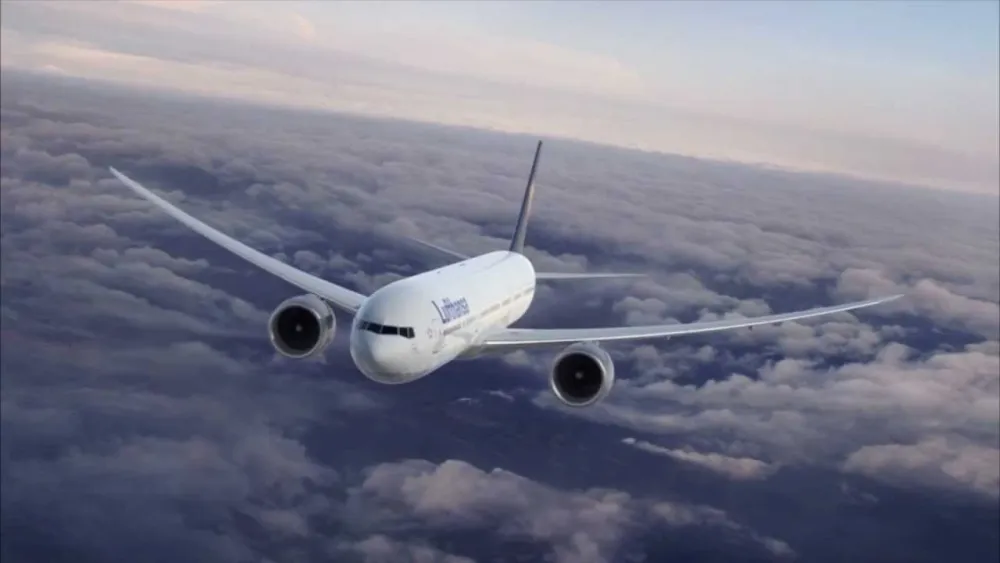
Boeing, Airbus orders worth $US40bn caught up in Trump move
May 09, 2018

Boeing and Airbus are facing significant challenges as orders valued at approximately 40 billion US dollars have become entangled in a decision made by former President Donald Trump. This move has raised concerns within the aviation industry regarding the future of these major aircraft manufacturers. The situation has led to uncertainty about the delivery timelines and potential impacts on production schedules. Analysts are closely monitoring the developments, as this situation could affect not only the companies involved but also their suppliers and the broader aerospace sector, potentially leading to job losses and economic ramifications.
The recent developments in the aviation industry have drawn significant attention, particularly regarding the orders placed by Boeing and Airbus, which are now valued at a staggering $US40 billion. This shift comes in the wake of a strategic maneuver by former President Donald Trump, which has implications for international trade and the competitiveness of these aerospace giants. Understanding the impact of these orders and the political landscape surrounding them is essential for stakeholders in the aviation sector.
The Context of Boeing and Airbus Orders
Boeing and Airbus are two of the largest aircraft manufacturers globally, with a dominant presence in both commercial and military aviation. The orders in question primarily involve commercial aircraft, which are crucial for airlines looking to expand their fleets or renew aging models. As the aviation market rebounds from the pandemic, airlines are eager to secure new aircraft to meet the growing demand for air travel.
The recent surge in orders was influenced by various factors, including the need for fuel-efficient aircraft and the push for sustainability within the industry. Both Boeing and Airbus have introduced new models that focus on reducing emissions and improving operational efficiency, making them attractive options for airlines.
Trump's Influence on the Aviation Industry
Former President Trump's administration implemented several trade policies that affected the aerospace sector. One of the most notable moves was the imposition of tariffs on imported goods, which included aircraft parts and components. These tariffs created a ripple effect throughout the supply chain, increasing costs for manufacturers like Boeing and Airbus.
Trump’s focus on domestic manufacturing aimed to bolster the U.S. economy, but it also led to tensions with international partners. The subsequent trade disputes impacted order volumes and negotiations between Boeing, Airbus, and various airlines worldwide. As a result, the $US40 billion worth of orders is not just a number; it represents a complex interplay of global trade dynamics and political influence.
The Economic Implications
The $US40 billion orders from Boeing and Airbus have significant economic implications. For the U.S. economy, Boeing is a major employer and supplier, contributing billions in revenue and thousands of jobs. Similarly, Airbus has a substantial presence in the U.S. market, with production facilities and partnerships that support local economies.
As airlines place orders for new aircraft, the ripple effects can be seen in various sectors, including manufacturing, engineering, and logistics. The demand for aircraft not only supports jobs within the aerospace industry but also stimulates growth in related industries, such as materials suppliers and maintenance services.
Chart: Boeing and Airbus Orders Comparison
| Company | Order Value (USD) | Number of Aircraft | Key Features |
|---|---|---|---|
| Boeing | $20 billion | 200 | Fuel efficiency, advanced avionics |
| Airbus | $20 billion | 180 | Sustainability, passenger comfort |
Future Outlook for the Aviation Industry
Looking ahead, the future of the aviation industry will heavily depend on how Boeing and Airbus navigate the challenges posed by geopolitical tensions and market demands. The shift towards sustainable aviation practices is likely to shape the types of aircraft that airlines will order, with an increasing emphasis on green technologies.
Furthermore, as the global economy continues to recover from the pandemic, airlines will need to adapt their strategies to meet changing consumer preferences. This includes investing in modern fleets that not only offer operational efficiency but also align with environmental goals. Both manufacturers are already investing heavily in research and development to stay ahead of the curve.
Conclusion: The Significance of Strategic Orders
The orders worth $US40 billion from Boeing and Airbus represent a critical moment in the aviation industry, influenced by political and economic factors. Understanding the implications of these orders goes beyond just numbers; it encompasses the broader context of international trade, economic recovery, and the future of air travel.
As Boeing and Airbus move forward, the industry will be watching closely to see how these orders play out and what they mean for the competitive landscape in aerospace. The strategic decisions made today will undoubtedly shape the future of aviation for years to come.
Related Articles

Explore Thailand: The Best Islands to Visit for Paradise, Adventure, and Relaxation

The Ultimate Guide to the Best Islands in Thailand for Your Next Getaway

Do babies need passports? How to get a passport for a newborn

How to get a U.S. passport fast: here’s how to expedite the process

What is Mobile Passport Control: 5 reasons why you should use it

SENTRI vs. Global Entry: A detailed guide

Do you need a passport to go to the Bahamas? Let’s find out

Do you need a passport to go to Mexico? A detailed guide

Do you need a passport to go to Canada? We got the answer

Do You Need a Passport for a Cruise: An Essential Travel Guide

Booster Seat Requirements: All the Rules to Follow in Your Rental Car

What Are the World’s Most Powerful Passports, and How Does Yours Rank?

How to Take a Passport Photo at Home: A Helpful Guide

You've got to have heart! Southwest's new livery

Your opinion: Should water be free on low cost carriers?

Young women bolder than guys as solo travellers
